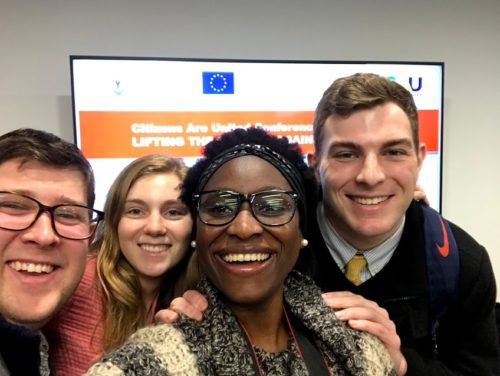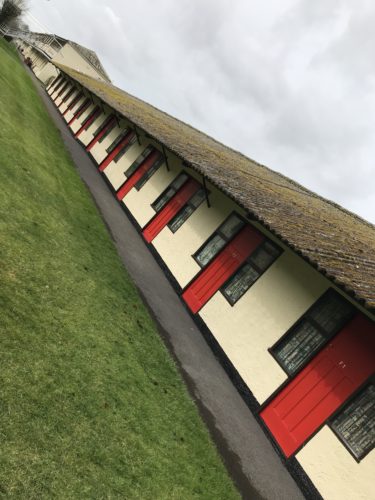In my January blog, I wrote about how excited I was for the conference I was planning through my internship with AkiDwA and Wezesha. However, at 2:30 am on January 25th (a couple hours before the event), and after 15+ hours of running around to finalize everything from programming, speakers’ remarks, press release, materials, attendance list, I was ready to QUIT! “As soon as this conference is over, I am quitting this internship.” I kept telling myself and anyone who asked how I was holding up. But I did not realize this attitude will change after I see the final result of the work–a full day convening that actually brought various parties together to discuss migration and integration in Ireland.
Held at the Irish Human Rights and Equality Commission, the event brought together Irish leaders together from NGOs to City Council members, Ministries, and partners from nine other European Countries (from Italy to Macedonia, Malta to Bulgaria). I couldn’t help but smile (internally) by how well everything came together. With the changing demographics of migrants from different background settling in Ireland, I was amazed by the discussions around integration efforts Irish natives and politicians are taking to forge better resettlement policies—there seemed to be a genuine attempt to integrate newcomers. And of course, the cherry on the top of the day was seeing a few of my Mitchell cohort (Celia, Cam, Sky) in the crowd–cheering me on like proud parents!

Cam, Celia, and Sky came to support me at the conference.
Despite this satisfactory feeling of my labor, I STILL PLANNED TO QUIT! “I need to focus on my dissertation, the main reason I am in Ireland,” I repeated to myself. But then I was made an offer that was hard to refuse—I was offered an opportunity to lead a job readiness skill building project for women at one of Ireland’s biggest Direct Provisions, Mosney. Direct provisions are accommodation centers for asylum seekers in Ireland. Nearly 40 of these centers are spread across the country and over the years have received some criticism due to its over-crowdedness, human degradations, lack of freedom, and a long wait (refugees/asylum seekers spending 3 years and more at the centers). I knew the conference planning had produced a lot of stress and anxiety I had not experienced since I moved to Ireland. But… I did not want to say no to this new opportunity because it would allow me to work directly with asylum seekers (particularly women) in Ireland. The pilot program is delivering five job training sessions to 10 women at Mosney and working with them to find job placement.
To be clear, I do not think this project is the answer to fix the direct provision system—it will not reduce the long wait asylum seekers experience in Ireland, nor will it give them the freedom to choose where and how to live. However, I want to believe it is a step (maybe non- linear) towards bringing asylum seekers (who are authorized to work while their cases are pending) in contact with locals through their job placements.
Leading this project will hopefully provide a full picture perspective to complete the intersectional frame between migration, policy-making and resettlement/integration for migrant women in Ireland.

Mosney Direct Provision
